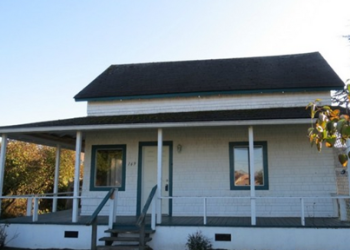Should I stop making mortgage payments and let the bank foreclose? This is a question that a lot of people are asking as they struggle financially to pay their bills and make their mortgage payment. In some cases a spouse has lost her job, and the income no longer supports a large mortgage payment. There are a thousand stories across the country explaining why good, hard working Americans cannot make their mortgage payments.
Should I Stop Making Mortgage Payments?
So the question comes up, “Should I stop making mortgage payments?” Here is some practical advice intended to help you make wise decisions as well as protect your number one responsibility–your family.
Let’s break this into two common scenarios. The first involves a family that finds the current fair market value (FMV) of their home to be substantially less than their mortgage balance. In other words, they are upside down. The second situation involves a family with a mortgage balance equal to the FMV of their home, or less, but because of a loss of income, they realize that in the months ahead they will not be able to continue to make the payments.
Stop Making Mortgage Payments – The Dilemma
 First, for the family that is upside down on their mortgage but can afford to keep making mortgage payments (and does not have to say, “I have to stop making mortgage payments.”), it is both a financial and moral issue. You’ll have to address the moral issue consistent with your own values and beliefs. I will say this, and this is the old moral and theological question: If you are a father and have children to feed, and you have no money and no food, would you steel a loaf of bread to feed your children? Absolutely, and that is also the correct answer among theologians. So if you are unable to make your payments and you have a responsibility to take care of your family, you may have to stop making mortgage payments.
First, for the family that is upside down on their mortgage but can afford to keep making mortgage payments (and does not have to say, “I have to stop making mortgage payments.”), it is both a financial and moral issue. You’ll have to address the moral issue consistent with your own values and beliefs. I will say this, and this is the old moral and theological question: If you are a father and have children to feed, and you have no money and no food, would you steel a loaf of bread to feed your children? Absolutely, and that is also the correct answer among theologians. So if you are unable to make your payments and you have a responsibility to take care of your family, you may have to stop making mortgage payments.
Stop Making Mortgage Payments – The Financial Picture
On the financial issue, it may make more sense to let the house go into foreclosure than make payments for the next 20+ years on a $400,000 mortgage balance. You may end up paying a total of $700,000 (principal plus interest) over that time period, but right now you may be looking at a house with a current FMV of only $275,000.
It might be easy for someone not in that situation to be critical and say you shouldn’t stop making mortgage payments. But one has to consider the long term picture, the challenges of growing older with the increasing cost of living and the growing burden of health care costs. The first rule of life is survival, and if survival means you must let a house go into foreclosure, then it is a tough decision that you will have to live with. Millions of Americans have found themselves forced to make such tough decisions this past year. Millions of Americans have had to stop making mortgage payments over the past three years.
Second, for the family that realizes they will run out of money to pay the mortgage in six months, it makes no sense to continue to throw precious money into the dark hole. If you know you will run out of money, and if there is no apparent pot of gold at the end of your rainbow, then giving a corporate institution on the east coast precious money you will need to survive in six months makes no sense at all. You may have no choice but to stop making mortgage payments. You must place your family’s survival at the top of your priority list. The banks, who have their own ethical and financial problems, must fend for themselves. When it comes to balancing the welfare of your bank or your family, it is no contest. Your family wins, and you are ethically, morally, spiritually, and financially justified if you stop making mortgage payments. And you should not throw good money after bad, meaning you should not pay property taxes either, or put money into the house for any other reason. Of course, if you have the money and income, you should make the payments, but we are discussing a family that does not have that option. Put in its proper perspective, it is not such a difficult moral decision. Uncomfortable? Yes, but necessary.
The question often comes up for those who have made a decision to stop making mortgage payments, should I list the home for sale as a short sale, since it is upside down now? The answer is yes, but you have to put a very sellable price on it, otherwise you will end up in the same situation 95% of everyone else, which is that they put too high a listing price on it, and it never sells even after reducing the price several times, and then it goes into foreclosure anyway. Get it sold now at a low short sale price.
If you must, stop making mortgage payments and let the bank foreclose, but take care of your family and your needs as you grow older.
If you need to consider selling your home, because you are in default right now or will be soon, email me or call me to discuss your options. As a Realtor and retired real estate attorney, I would be glad to share whatever I know with you. For those who have to make the hard financial decision, it is not wrong to stop making mortgage payments.
Last Updated on July 27, 2012 by Chuck Marunde





























Buying real estate these days is hard. There’s a lot to know, and so many things that can go wrong. We’re not even buying in Sequim, but we have been using your real estate blog to educate ourselves on some key issues and how to watch our backside. Thanks for sharing your knowledge and your lifetime of experience and giving it to people like us totally free.
I agree with that there were a lot of people that borrowed above their means so now they are paying for it by struggling to pay their mortgages. But there are people didn’t borrow heavy and are struggling which is really bad for them and who should talk with their banks about what’s the best option and if they have to, foreclose or if by some miracle sell their house and try and get some money back.
I think a lot of these people bought homes that should never have been financed, and now looks at the situation. As much as its the banks problem of lending the money, people need to be smarter with their money.